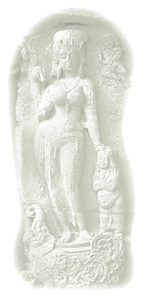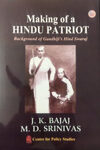
PREFACE
India has been a land of great agricultural abundance throughout her long history. It was during the period of British administration that agriculture began to languish in large parts of the country, and per capita availability of food declined to the level of around 200 kg per capita per year, which suffices only to maintain bare physical existence. After getting rid of the British almost five decades ago, much public effort has gone into agriculture; but per capita availability of food has remained almost unchanged. Consequently, a large proportion of Indian people have continued to remain hungry and malnourished.
Agriculture is the key to the economic growth of India. Enhancing agricultural activity offers the only way of immediately and gainfully employing the people of India, and putting to use the extraordinarily plentiful resources of land and water that we have been endowed with. This is also the way of removing hunger and poverty from the face of India. It is common economic wisdom that for a populous country like India, economic reconstruction has to begin with agriculture. The enhanced economic resources and demand generated in agriculture then drive growth in other sectors of economy.
India has however been trying to defy this common economic wisdom. We have let production of foodgrains grow at a rate barely sufficient to keep pace with the growth of population; while concentrating our economic energies on achieving substantial growth only in services, and to a lesser extent in manufacture. This is a policy guaranteed to perpetuate hunger.
Since economic arguments have failed to change the planners of India from this disastrous course, the Centre for Policy Studies decided to shift the level of discussion to the plane of collective morality, ethics and dharma. In an exhaustive study of the classical Indian position on food and hunger, we showed that assuring an abundance of foodgrains and sharing of food amongst not only men but also all other created beings, so that none within the polity remains hungry, has been the primary principle of righteous public functioning, the primary dharma, of India. This study, published under the title, Annam Bahu Kurvita: Recollecting the Indian Discipline of Growing and Sharing Food in Plenty, was presented before the highest Acharyas of India in a sadas held at Sri Tirumala Kshetra. From that divinely sanctified Kshetra, the gathered Acharyas declared that re-establishing the dharma of annabahulya and annadana, the discipline of ensuring abundance in production and sharing of food, should be the first national priority today. A report of the deliberations of this sadas is being published in a companion volume.
Following the call of the Acharyas, the high political leaders of India cutting across all party affiliations met in a seminar at the Parliament House Annex on August 13, 1997, two days before the fiftieth anniversary of Indian Independence. The seminar was organised at the initiative of the Centre for Policy Studies, Chennai and the Observer Research Foundation, Delhi. This volume is a report of the proceedings of this seminar.
The leaders gathered at Delhi to further deliberate on the advice of the Acharyas included several who had ruled Independent India for long and others who were soon to ascend to rulership. Amongst the latter, there were, Sri Atal Behari Vajpayee, the present prime minister of India; Sri Lal Krishna Advani, the home minister of India; Sri Murli Manohar Joshi, the union minister for human resource development; Sri Nitish Kumar, the union minister for agriculture, and Srimati Uma Bharti, the union minister for sports and youth affairs. Sri Chaturanan Mishra, the then union minister for agriculture, inaugurated the meeting. Sri Chandra Shekhar, former prime-minister of India; Sri Pranab Mukherjee, former finance minister of India and former deputy chairman of the planning commission; and Sri Ajit Singh, former union minister for food, addressed the meeting. Besides them Sri Nawal Kishore Sharma and Sri Jitendra Prasada of the Indian National Congress, Sri D. Raja of the Communist Party of India; Sri G. K. Moopanar of the Tamil Manila Congress were also represented.
The former, current and future rulers of India gathered in this meeting agreed that India continued to live with scarcity of food, and consequently a significant proportion of Indians continued to suffer from hunger and malnutrition even after fifty years of independence. Sri Atal Behari Vajpayee recalled how during a visit to Soviet Union as a union minister in the first Janata government, he and his colleague in the cabinet and later prime-minister of India, Inder Kumar Gujral, had made the error of asserting before Mr. Kosygin, the then prime-minister of the Soviet Union, that India had achieved sufficiency in food, and how Mr. Kosygin had spent almost an hour convincing them that to make such a claim India needed to produce much more.
Sri Murli Manohar Joshi reminded the audience that India was a civilisation of sharing while that of the West was based on competitive consumption. It is dangerous for such diverse civilisations to develop mutual trade in an essentially ethical good like food. And, he warned the participants of the havoc that bringing agriculture under the thumb of global trading regimes was likely to cause. Sri Pranab Kumar Mukherjee declared that he had no hesitation in agreeing with the Centre’s perception that per capita availability of food in India remained highly inadequate, and there was a need for making a quantum jump in our food production. He reminded the participants that India was a large country, and no country of the world could possibly produce the surplus necessary to meet the Indian deficit. He went on to say that during his days in the planning commission he had tried to make the commission undertake the necessary effort to raise agricultural production to a significantly higher level, but he had failed to convince the ‘experts’. Sri Ajit Singh and Sri Nitish Kumar asserted that there could be no development of India without the development of Indian agriculture. Sri Chaturanan Mishra and Sri D. Raja emphasised the need for greatly improving distribution of food to ensure sufficiency of food for all.
Sri Chandra Shekhar forcefully asserted that questions of food and hunger were not such as might be left to the vagaries of the market and there was nothing shameful or wrong in a government spending from the public funds to feed the hungry. He offered to do everything within his capacity to help any effort directed at enhancing the production of food and assuaging hunger in India. Srimati Uma Bharati also offered her services for the cause with deep feeling.
Sri Lal Krishna Advani said that it was a matter of great shame that scarcity of food and hunger persisted in India after fifty years of Independence and declared that, “When we part from here, the precarious situation of India in matters of food and hunger shall be etched on our mind, and we shall part with the resolution that notwithstanding the various ideological differences we have amongst ourselves, we need to come together to solve such problems. I request you to value this feeling…”
With the leaders of India representing all shades of opinion committing themselves to the cause with such emphatic feelings, it seemed that India would soon launch into a great movement to generate an abundance of food all around. And, that the scourge of scarcity and hunger that had clouded the face of India for the last couple of centuries would be lifted soon.
The commitments and assertions seem to have led to no action. The situation of India in matters of food and hunger seems to have worsened in the last three years. Production has remained stagnant. Offtake of food from the public distribution system has declined. And opening up of India to global trading in food threatens to further restrict and destabilise the cultivation of food in India.
We are publishing the proceedings of the seminar to remind our national leaders of what they had said on the solemn occasion of the fiftieth anniversay of Independence, about the situation of India concerning food and hunger. We hardly need to say that a country that carries the sin of hunger and malnutrition of many can hardly expect to advance to any higher state of physical or spiritual well being. The problem of food and hunger has to be addressed before the task of nation building can begin with any seriousness.
We continue to cherish the fond hope that the nation shall soon undertake resolute action to fulfil the primary dharma of ensuring an abundance of food and sharing.
We are thankful to the senior national leaders and others who agreed to participate in the seminar on our request. We are especially thankful to Sri R. K. Mishra of the Observer Research Foundation, without whose personal interest and commitment this seminar would not have been possible. And most importantly, we pay our respectful obeisance to Sri Vanamamalai Jeeyar Swamiji of Nanguneri, who graced the occasion with his presence and blessings, and thus imparted it a rare seriousness and sanctity.
Centre for Policy Studies, Chennai
Makra Sankranti, Kali 5102
January 14, 2001



